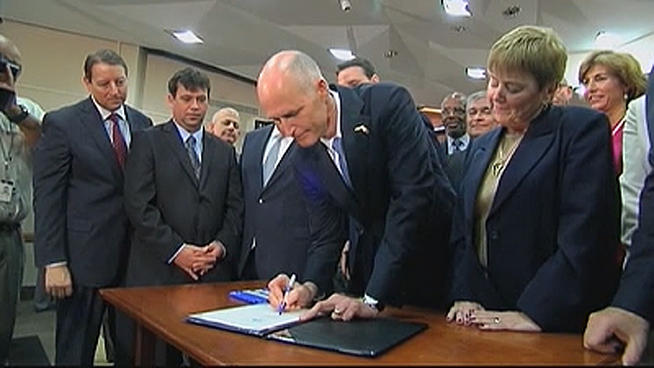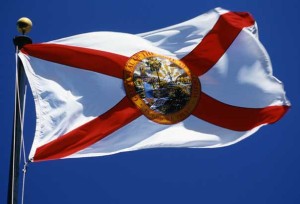Transition of Control of a Florida Community Association
Click here to download this article as a .PDF
A wise man once said “transitions are never easy”. A wise lawyer once said “transition of control of a Florida community association are never easy and can be disastrous”.
Following is a general list of items for a community association to be aware of as they proceed towards the important process of the transition of control from a developer controlled association to that of a member controlled association. The following information is intended as general information and not legal advice. For legal advice an attorney must be consulted.
We accumulated the following information based upon our experience in representing many community associations and have found the following tasks and information is important for an association’s members to undertake and review prior to signing a release with the developer.
1. Interviewing of banks. Immediately after the transition the association should open new bank accounts. The forms necessary to open the appropriate accounts should be secured now to avoid undue delay.
2. Begin interviewing professionals, which should in the very least include:
a. Accountant;
b. Property manager;
c. Attorney; and
d. Engineer (with experience in community association transitions).
3. If the post office is diverting the mail sent to the association to an address of the developer, secure the forms to have the mail sent directly to the association.
4. Secure from the Florida Secretary of State a statement of change for the Registered Agent. This document can be downloaded from www.sunbiz.org.
5. A form known as “Request for Copy of Tax Form” should be retrieved from the Internal Revenue Service. The completion and eventual submission of this form will enable the association to obtain the previous three (3) years of tax returns after the transition of control is complete.
6. Begin identifying potential candidates for Board of Directors’ positions.
Following are a list of items that we attempt to receive from a developer during the
transition period:
a. A full and complete copy of the association’s Declaration of Covenants and Restrictions, Articles of Incorporation, Bylaws and Rules and Regulations;
b. The financial records of the association from the date of incorporation through the present date;
c. Access to, and control of, the association’s funds that remain in the developer’s bank accounts for the association;
d. Copies of all deeds to common property owned by the association;
e. Copies of the minute books from all of the meetings held by the Director;
f. Bills of sale, or receipts for, any of the association’s tangible personal property;
g. Copy of all contracts to which the association is presently a party. Such contracts typically include landscaping, property management, accounting, janitorial, etc.;
h. Name, address and telephone numbers of all contractors and/or employees that are presently being employed by the association;
i. Copies of any and all insurance policies that are presently in effect;
j. A complete list of all current home owners along with their address, telephone number and, if applicable, section or lot numbers;
k. Any and all warranties the association might possess for items such as air conditioning, the pool, etc;
l. Any and all permits issued by governmental authorities that regulate the association from the present date relating back to approximately one year prior;
m. Any leases for the common areas to which the association is a party;
n. Copy of any master keys or keys utilized for the common areas;
o. An up to date ledger sheet for each owner and any assessment payments that are in arrears as well as a full payment history for each owner; and
p. The “Official Records” of the association Florida Statute §720.303(4), lists the official records that an association is required to maintain for a period of seven (7) years. The developer is also under this duty and should have these documents in its possession. I have enclosed for your review a copy of this statute.
***2013 Florida Legislative Amendments
F.S.§ 720.303 (6)(d) Budgets. If a homeowner association developer elects to maintain a reserve account for the HOA, the developer’s budget must designate the particular purpose or use of the funds. The underlined portion below is the amended text of F.S.§ 720.303 (6)(d):
(d) An association is deemed to have provided for reserve accounts if reserve accounts have been initially established by the developer or if the membership of the association affirmatively elects to provide for reserves. If reserve accounts are established by the developer, the budget must designate the components for which the reserve accounts may be used. If reserve accounts are not initially provided by the developer, the membership of the association may elect to do so upon the affirmative approval of a majority of the total voting interests of the association. . .
F.S. § 720.307 Transition of association control in a community —Added to the threshold for an “automatic transition” to member control are a developer’s abandonment of its assessment, maintenance or construction responsibilities or if the developer files for Chapter 7 bankruptcy, enters receivership or loses title to a common area through a foreclosure. The underlined portion below is the amended text of F.S. § 720.307:
720.307 Transition of association control in a community.—
With respect to homeowners’ associations:
(1) Members other than the developer are entitled to elect at least a majority of the members of the board of directors of the homeowners’ association when the earlier of the following events occurs:
. . .
c) Upon the developer abandoning or deserting its responsibility to maintain and complete the amenities or infrastructure as disclosed in the governing documents. There is a rebuttable presumption that the developer has abandoned and deserted the property if the developer has unpaid assessments or guaranteed amounts under s. 720.308 for a period of more than 2 years;
(d) Upon the developer filing a petition seeking protection under chapter 7 of the federal Bankruptcy Code;
(e) Upon the developer losing title to the property through a foreclosure action or the transfer of a deed in lieu of foreclosure, unless the successor owner has accepted an assignment of developer rights and responsibilities first arising after the date of such assignment; or
(f) Upon a receiver for the developer being appointed by a circuit court and not being discharged within 30 days after such appointment, unless the court determines within 30 days after such appointment that transfer of control would be detrimental to the association or its members.
F.S. § 720.307 Pre-transition Board of Directors. The amendment to F.S. §720.307 also lowered the threshold for a member to serve as a director on the pre-transition Board of Directors. Members, other than the developer, are allowed to elect at least one non-developer related member to the pre-transition Board of Directors if 50% of the parcels in all phases have been conveyed to the members.
F.S. § 720.3075 Prohibited clauses in association documents–Developers. At any point pre-transition of control (not the 90% conveyed mark) a developer’s unilateral amendment to the Governing Documents will be subject to scrutiny as to its reasonableness. No longer considered reasonable or allowable are “ . . .amendments to the governing documents that are arbitrary, capricious, or in bad faith; destroy the general plan of development; prejudice the rights of existing nondeveloper members to use and enjoy the benefits of common property; or materially shift economic burdens from the developer to the existing nondeveloper members.”
The above list is not exhaustive; however, by beginning to request these items the association will be in a better position as the transition progresses. Additionally, it is recommended the association accept the transition of the developer via the resignation of developer members of the Board and then placement of owner member directors after an election. At that time, developers often request the association sign a release. By signing a release the association will waive any and all rights that it might have to claims for construction defects and/or misappropriation of funds. As such, the association should have the transition of control occur and then retain the services of an accountant, an attorney and an engineer. These professionals will perform what is commonly known as “due diligence”. Without hiring these professionals there is no way the association can truly know whether or not they are aware of every issue that remains outstanding, or liability incurred by the developer, that is now an association liability.
Certain times the above referenced reports issued by these professionals have minor problems that are easily settled with the developer. Other times, there are hidden problems that would have surely gone unnoticed if it were not for the diligent work of these professionals. Either way, the association’s Board of Directors has a fiduciary duty to its members and should in the very least understand the present state of the association before signing a release with the developer.
After the reports from the professionals are returned to the association, the Board of Directors should attempt to informally negotiate with the developer for any repairs or funds they believe are owed. This informal approach should involve keeping the association’s counsel informed as to its status and, if necessary, the review of documents. If the association is successful in its negotiations, the attorney for the association, as well as that of the developer, can draft the final documents. If the negotiations are not successful, the attorney for the association should still attempt to settle the matter with the developer’s attorney with a set time period for completion. It is always better to try and settle for a fair amount then filing a lawsuit. However, sometimes it is unavoidable and a lawsuit is necessary



